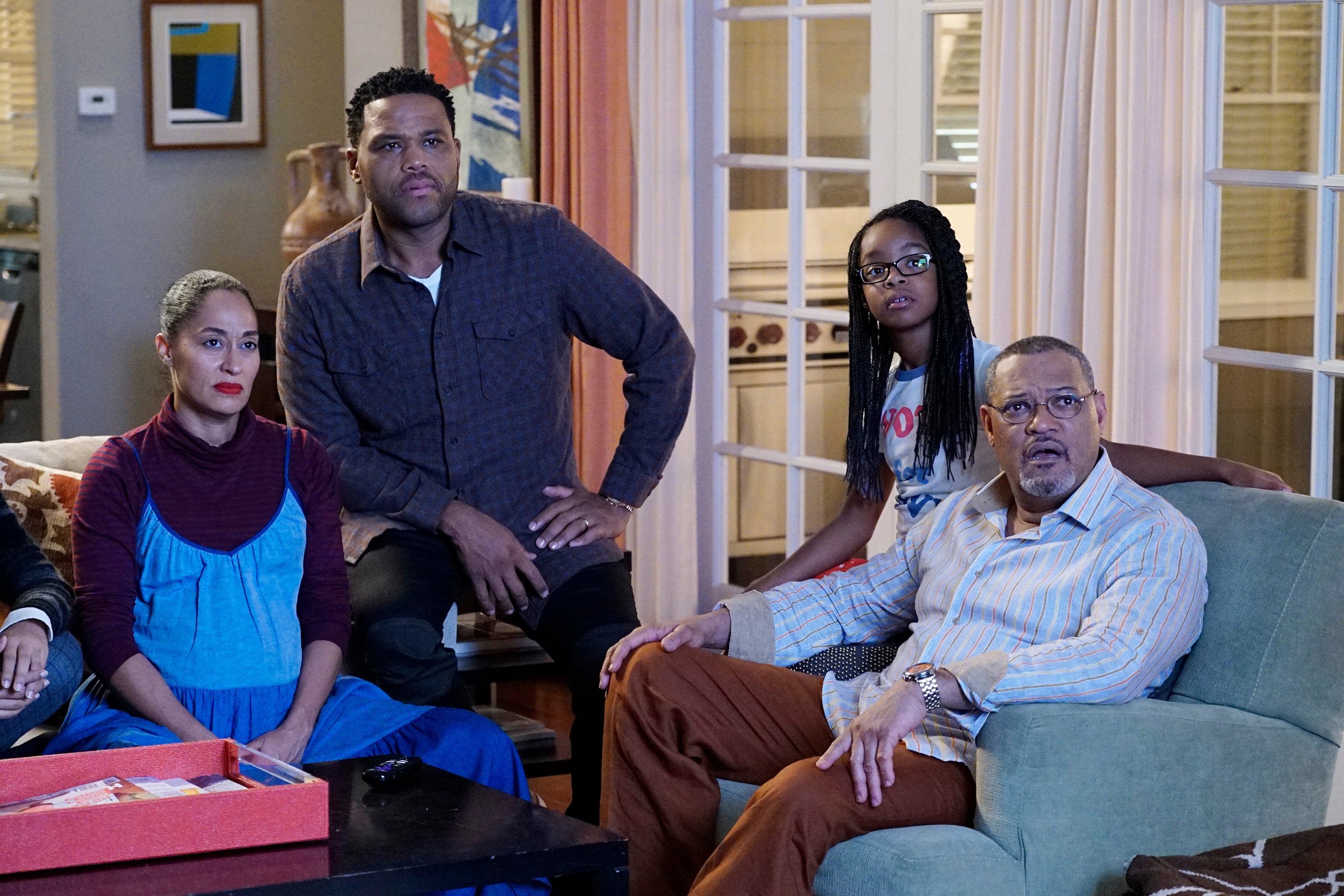
This article was originally published on EW.
How Hollywood will react to the 2016 presidential election over the next four years remains to be seen, but Kenya Barris set the bar awfully high with last week’s powerful episode of Black-ish.
In the episode of the ABC sitcom, called “Lemons,” lead character Dre (Anthony Anderson) finds himself at the center of a heated office debate over the election — with some of his Hillary Clinton-supporting co-workers accusing Dre of not being upset Clinton lost to Donald Trump.
“I love this country even though at times it doesn’t love me back,” Dre said in the episode’s highlight moment.
“For my whole life, my parents, my grandparents, me, for most black people, this system has never worked for us. But we still play ball, tried to do our best to live by the rules even though we knew they would never work out in our favor, had to live in neighborhoods that you wouldn’t drive through, send our kids to schools with books so beat up you couldn’t read them, work jobs that you wouldn’t consider in your nightmares. You think I’m not sad that Hillary didn’t win? That I’m not terrified about what Trump’s about to do? I’m used to things not going my way. I’m sorry that you’re not and it’s blowing your mind, so excuse me if I get a little offended because I didn’t see all of this outrage when everything was happening to all of my people since we were stuffed on boats in chains. I love this country as much — if not more — than you do. And don’t you ever forget that.”
For Barris, “Lemons” was something he had to write. It was just difficult. Rather than turn Dre’s speech and the episode into a polemic, he wanted to talk about race and how the feelings many experienced after the election were similar to the way black people in this country have always felt. Barris had already had a Dre-like blow up at his writers in the writer’s room.
Subscribe to our daily newsletter for the latest in hair, beauty, style and celebrity news
“I felt really bad. I apologized,” he said. But then he realized that his emotions were not anachronistic. He was encouraged by Late Night with Seth Meyers writer Amber Ruffin, who voiced a similar sentiment on Meyers’ show, and Dave Chappelle and Chris Rock’s post-election sketch on Saturday Night Live.
So Barris took his emotions and went for it. He tied Dre’s monologue, which can be seen here, to Nina Simone’s “Strange Fruit” and images from the Jim Crow era.
“That song has haunted me forever,” says Barris. “The strange fruit she is talking about in that song is our bodies hanging from the trees. It’s a haunting reminder of where we’ve been in this country and it’s sort of saying, we’ve been in bad places before and we’ve gotten out of it. Maybe the lesson to be learned is from the people who have risen from that era. The civil rights era wouldn’t have happened without the support of everyone. If we can get past this racial b.s. and see each other as we all got disenfranchised by the American electoral system, maybe we can all get together and figure out how to make the next four years better then the last.”
Despite the near-universal praise for the episode, Barris says the table read didn’t go all that well. “It wasn’t a bad table read but it wasn’t a great table read and I felt like, ‘Oh my god, these are my people and if they are feeling like this, what’s going to happen when the world sees it?’ I got very nervous,” he adds.
Despite his anxiety, Barris moved forward — primarily because he didn’t have another episode to shoot in its place. The response he says has been overwhelmingly positive.
“I was surprised,” he says. “I actually got some conservative response that were like, ‘I don’t watch your show often but I felt like I had to watch this one. Thank you for trying to show both sides.’”
Barris, who Wednesday will air a much lighter episode about couples’ therapy and the misconceptions people have about mental health and how to deal with it, says he doesn’t intend to focus on Trump going forward. But he can’t promise that he will stay away, either.